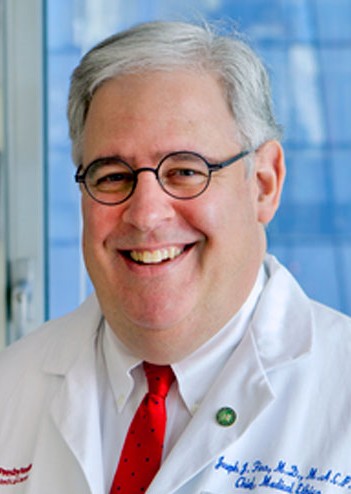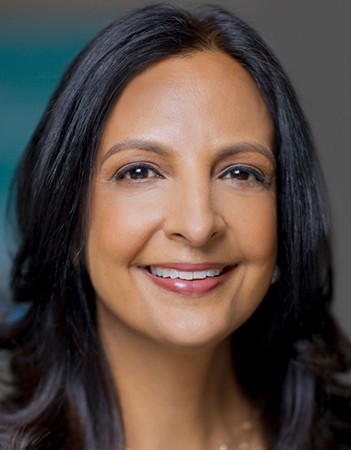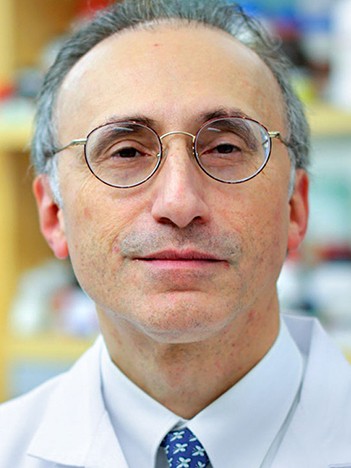Three faculty inducted into Association of American Physicians
By Maureen Salamon
Three distinguished Weill Cornell Medicine physician-scientists, Dr. Joseph J. Fins, Dr. Rainu Kaushal and Dr. Shahin Rafii, have been elected to the Association of American Physicians (AAP).
Regarded as one of the top honors in the field of health and medicine, election to the AAP recognizes physician-scientists exhibiting excellence in the pursuit of medical knowledge and advancing basic or translational science discoveries and their use in clinical medicine.
Dr. Joseph J. Fins, chief of the Division of Medical Ethics, the E. William Davis Jr., M.D., Professor of Medical Ethics and a professor of medicine at Weill Cornell Medicine, was recognized for his pioneering ethical, legal and policy work related to severe brain injury and disorders of consciousness. “I want to understand our moral obligations to people who have covert consciousness, who are often misdiagnosed, marginalized and institutionalized,” Fins said. “This becomes especially important as we develop new methods of diagnosis and treatment to help these patients.”
He is currently the principal investigator of a National Institutes of Health (NIH) BRAIN Initiative grant entitled “Cognitive Restoration: Neuroethics and Disability Rights,” which is exploring the experiences of subjects and families participating in a first-in-human trial of deep brain stimulation in moderate to severe brain injury. Fins is president of the International Neuroethics Society and author of “Rights Come to Mind: Brain Injury, Ethics & The Struggle for Consciousness” published by Cambridge University Press. He is also a member of the adjunct faculty at Rockefeller University and the Solomon Center Distinguished Scholar in Medicine, Bioethics, and the Law at Yale Law School, where he is also a visiting professor of law.
Selecting a physician-ethicist for AAP membership is “kind of novel,” noted Fins, who holds additional Weill Cornell Medicine appointments as professor of medicine in psychiatry, professor of population health sciences, professor of medical ethics in rehabilitation medicine, and professor of medical ethics in neurology. “It was especially gratifying to be elected, given the work I do at the interface of the sciences and humanities,” he said. “Many of the mentors I’ve admired have been AAP members, so it is wonderful and humbling to join that lineage.”
Dr. Rainu Kaushal, senior associate dean for clinical research, chair of the Department of Population Health Sciences and the Nanette Laitman Distinguished Professor of Population Health Sciences at Weill Cornell Medicine, was recognized for her contributions to pediatric patient safety, health information technology and value-based health care delivery in the U.S. health care system.
She led a landmark study of pediatric patient safety, pinpointing why children are more susceptible to harm through the use of medications and which “helped launch pediatric safety programs focused on the uniqueness of children and their vulnerabilities,” Kaushal explained.
Kaushal has also worked to establish a large-scale clinical data infrastructure that enabled hundreds of studies to bring therapeutic interventions to patients more quickly. With much work examining how social factors relate to clinical outcomes, Kaushal recently received a $9.8 million one-year grant from the NIH to understand long COVID-19 from a clinical and social perspective.
“I feel my work has enabled me to improve health care delivery and improve health,” said Kaushal. “Any time I can improve the experience of a specific patient within the health care system, that gives me the greatest pleasure and satisfaction. And the AAP is an important and influential body, so I’m thrilled to become part of it.”
Dr. Shahin Rafii, chief of Division of Regenerative Medicine, director of the Ansary Stem Cell Institute and the Arthur B. Belfer Professor in Genetic Medicine at Weill Cornell Medicine, was recognized for his research that has identified the key molecular and cellular pathways involved in tumor growth and organ regeneration. He established the transformative concept that vascular endothelial cells – which comprise the inner lining of blood vessels – produce essential growth factors that orchestrate tissue-specific repair or promote tumor growth and metastasis.
“One of the achievements of my research team has been developing enabling technologies to build customized blood vessels for each organ,” said Rafii, who is also a professor of medicine and reproductive medicine at Weill Cornell Medicine, and whose division includes the newly established Hartman Institute for Therapeutic Organ Regeneration. “My group is leveraging these technologies to build replacement mini-organs that can be transplanted to relieve suffering of patients who are not eligible to receive cadaveric organ transplants. We hope to capitalize on our vascularize human pancreatic mini-organs to treat type 1 diabetes hopefully within the next year.”
Rafii has also received an Outstanding Investigator Award from the National Heart, Lung, and Blood Institute of NIH for his work to accelerate regenerative medicine technology.
“Throughout the last few decades, the potential of vascular therapeutics has been confronted with skepticism and hurdles. My group is pleased that the AAP has acknowledged that blood vessels could play executive roles in repairing damaged organs or target tumors,” Rafii said. “I am also grateful for their recognition of translational physician-scientists working in labs to help cure disease.”
Founded in 1885, the AAP includes about 1,200 active members and 700 emeritus and honorary members from the United States, Canada and other countries. The newest AAP members, 71 in total, were inducted during a ceremony at the organization’s annual meeting on April 9 in Chicago, where they joined others in sharing their scientific discoveries and contributions.
Maureen Salamon is a freelance writer for Weill Cornell Medicine.
Media Contact
Get Cornell news delivered right to your inbox.
Subscribe



